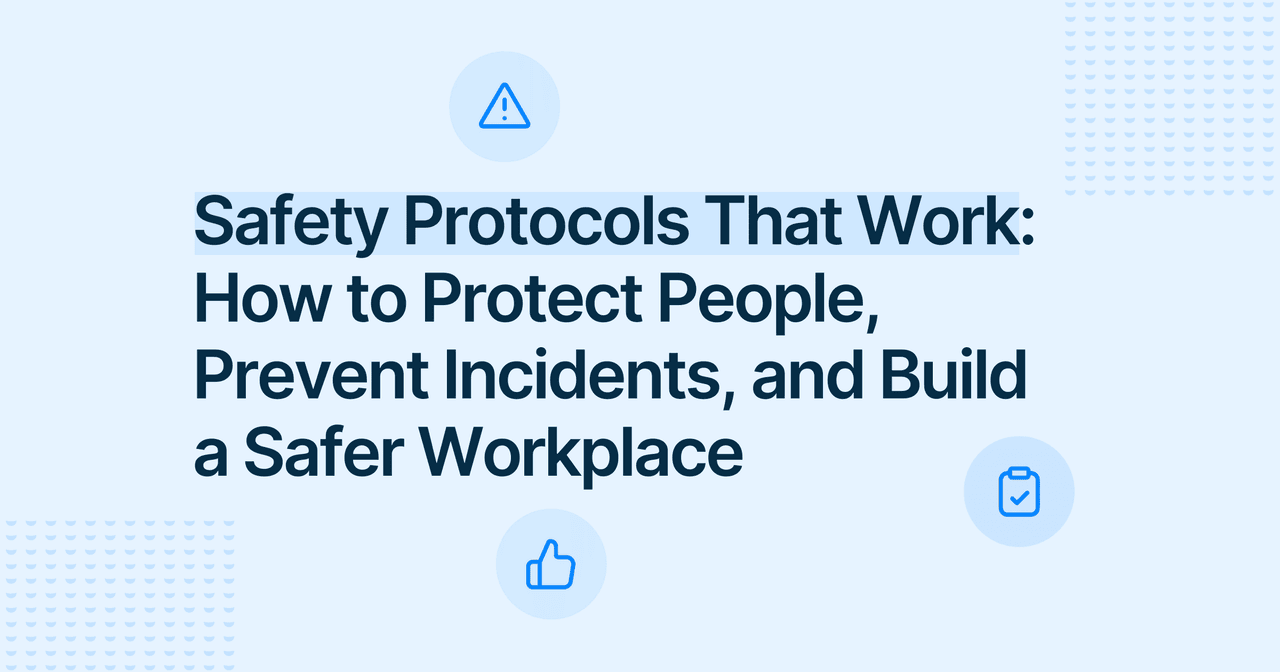



Modern Compliance Platform
Centralized whistleblowing and investigations in one secure platform.
Legal & Compliance

Yeva Bartkiv
Copywriter
Published
2025-07-07
Reading time
5 min


Table of contents
Subscribe to our newsletter
In an increasingly regulated global economy, no business is immune from scrutiny. Anti-bribery and anti-corruption regulations like the U.S. Foreign Corrupt Practices Act (FCPA) and the UK Bribery Act 2010 are reshaping the way companies must manage their risk, relationships, and responsibilities.

From foreign subsidiaries to local distributors, every entity within a company’s supply chain can expose it to compliance failure. That’s why implementing a robust anti-bribery and corruption policy is no longer optional - it's a strategic necessity.
What is anti-bribery and corruption policy, and why is it crucial? At its core, it is a formalized set of procedures designed to prevent, detect, and respond to corrupt activities such as paying bribes, offering kickbacks, or engaging in facilitation payments.
These acts, often directed at public officials or business partners, threaten not only a company’s legal standing but also its reputation and financial stability.
The purpose of the FCPA's anti-bribery provisions is to prohibit offering anything of value to foreign government officials to gain a business advantage. The UK Bribery Act, broader in scope, criminalizes both giving and receiving bribes, even in the private sector.
Companies that fail to implement adequate procedures to prevent bribery face significant consequences, including an unlimited fine, reputational damage, and even prosecution by the Department of Justice or the Securities and Exchange Commission.
A company’s anti-bribery and corruption policy should align with both anti-bribery laws and anti-corruption laws. At a minimum, it must include:
The anti-bribery and corruption employee policy must be scalable and adaptable to different jurisdictions, ensuring compliance across all areas of operation.

Many companies operate across borders, which brings overlapping and sometimes conflicting legal obligations. The two most cited frameworks are:
Other applicable regulations may include OECD guidelines, anti-bribery laws in local jurisdictions, and regional anti-corruption enforcement frameworks.
Failure to adhere to these frameworks can result in regulatory investigations, legal sanctions, and major disruptions to business operations.
Do I need an anti-bribery policy? Yes, and here’s why:
Implementation is where many companies fall short. The following steps ensure that your corporate anti-bribery policy becomes more than just a document:
Senior leadership must visibly champion the policy. This includes integrating anti-bribery and corruption goals into business practices and resource allocation.
Analyze the company’s operations, regions, partnerships, and transactions to identify high-risk areas. Red flags may include dealings with foreign government officials, rapid expansion in unregulated markets, or reliance on intermediaries.

Know your third parties. Conduct background checks, monitor transactions, and validate that your distributors, suppliers, and agents adhere to your ethical standards.
Internal audit teams should help establish checks around payments, gifts, hiring, and supplier relationships. Controls should flag unusual activity and support investigations.
Compliance training should be relevant, ongoing, and tailored to different roles. Include real-world scenarios and clarify legal obligations under the FCPA and UK Bribery Act.
Enable employees to report suspicious activities through confidential whistleblowing hotlines. Investigate all reports promptly and impartially.
Corruption compliance is dynamic. Regularly evaluate policy effectiveness and refine procedures in response to audits, changes in anti-corruption laws, or shifts in business operations.
Many companies underestimate the true cost of failing to implement an anti-bribery and corruption policy. Here are some real-world cases that may motivate you to do otherwise:
Each of these cases highlights the need for proactive mitigation through policy, training, and enforcement.
An anti-bribery and anti-corruption policy also supports your environmental, social, and governance (ESG) objectives. It strengthens your culture of integrity and positions your brand as one committed to ethical conduct and transparency.
It also enhances decision-making at every level, from strategic partnerships to vendor selection. By creating a uniform standard across all business units, companies can reduce ambiguity and improve accountability.

A defensible anti-bribery and corruption policy must stand up to scrutiny from auditors, regulators, and stakeholders. To do so, companies must document:
Auditable trails create a clear picture of your company’s good faith efforts to prevent corrupt activities and strengthen ethical practices.
Creating and enforcing a strong anti-bribery and corruption policy is no longer optional. It’s essential for protecting your brand, your stakeholders, and your bottom line.
Don’t wait for a violation to uncover your weaknesses. Whether you need to build a policy from scratch or audit your current framework, now is the time to act.
Book a demo today to see how our platform simplifies anti-bribery and corruption compliance across all your global operations.




Centralized whistleblowing and investigations in one secure platform.
Keep Reading

Alaa El-Shaarawi2026-02-108 min
Legal & Compliance

Alaa El-Shaarawi2026-02-098 min
Workplace Environment

Marie Roland2026-02-033 min
Workplace Environment

Alaa El-Shaarawi2026-02-029 min
Workplace Environment